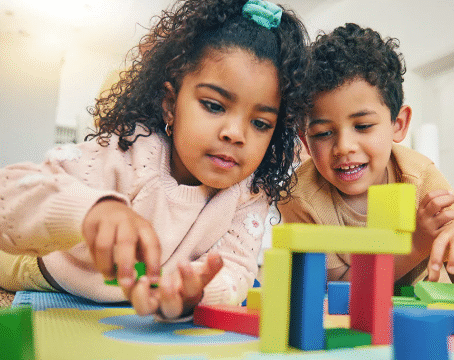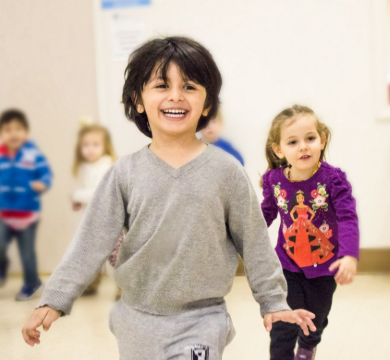Raising children with an awareness of health and well-being can feel like a big task, especially when there are so many distractions around them. From fast food commercials to hours of screen time, kids are often surrounded by choices that do not always encourage a balanced lifestyle. However, teaching children to live healthily does not need to feel like a chore. In fact, the most effective way to help children develop lifelong healthy habits is to make the process enjoyable. When healthy living feels like fun, children are more likely to stay engaged and carry those habits into adulthood.
The key lies in blending creativity, consistency, and positivity. By turning everyday routines into playful experiences, parents can nurture habits that encourage children to eat well, stay active, rest properly, and make thoughtful decisions about their bodies and minds.
One of the simplest ways to bring fun into healthy living is through food. Rather than presenting meals as a set of rules, parents can frame them as exciting opportunities. Inviting children into the kitchen is a powerful first step. Young ones often enjoy washing vegetables, stirring ingredients, or arranging colorful fruits on a plate. When children participate in preparing their food, they develop curiosity and pride in what they eat. A bowl of fruit salad feels more like an adventure when a child has chosen the fruits, cut them into shapes with safe tools, and arranged them into a rainbow pattern. This creativity transforms eating from something they are told to do into something they want to do.
Play also has a special role in making exercise fun. Instead of focusing on structured workouts, families can approach activity as a game. Dancing to favorite songs in the living room, running through sprinklers in the yard, or turning chores into timed challenges can all bring joy into movement. Children naturally love to play, and when physical activity is presented as playtime, they move their bodies without even thinking about it. Parents who join in amplify the fun while setting an example. A family walk turns into a treasure hunt if everyone looks for interesting leaves, rocks, or birds along the way. This approach encourages children to see activity not as something separate but as an exciting part of daily life.
Another area where fun supports healthy living is hydration. Many children find it difficult to drink enough water, especially when sugary drinks seem more appealing. Parents can make water interesting by infusing it with slices of fruit or offering colorful reusable bottles that children choose themselves. Turning hydration into a small challenge, like keeping track of how many times the bottle is refilled, can motivate kids to stay consistent. A glass of water feels much less plain when presented with a slice of orange floating inside, or when children imagine they are athletes fueling up for a big game.
Sleep and rest are just as important for health as food and movement. Children often resist bedtime, but when routines are crafted with a sense of comfort and fun, they begin to look forward to winding down. A consistent bedtime ritual, such as reading a story, dimming the lights, or playing soft music, can feel like a treat rather than a rule. Allowing children to choose their own bedtime book or pick a favorite blanket gives them a sense of control. Over time, they associate bedtime with safety, comfort, and even excitement, which makes rest a natural part of their daily rhythm.
Healthy living also involves mental well-being, and this area can be approached through storytelling and imaginative play. Parents can teach children about feelings by using characters or simple stories that explain emotions. A stuffed animal might feel “tired” after running all day, or a doll might need a “quiet moment” when things feel overwhelming. These small stories help children understand self-care in a way that feels relatable and playful. They learn that caring for their minds is just as important as caring for their bodies.
Family traditions can also support fun in healthy living. Weekly traditions such as cooking a new recipe together on Fridays, going on a Saturday morning bike ride, or planting vegetables in the garden create anticipation. Children thrive on routine, and when routines are linked with fun experiences, healthy choices naturally become part of family culture. These moments not only teach valuable skills but also build lasting memories that children will carry with them into adulthood.
Parents themselves play the most powerful role in shaping how children view healthy living. When children see adults enjoying balanced meals, getting excited about physical activity, and talking positively about wellness, they internalize these behaviors as normal and rewarding. Modeling healthy behavior with enthusiasm demonstrates that wellness is not a burden but a joyful way of life. A child who sees a parent laughing while dancing in the kitchen is far more likely to join in and associate movement with happiness.
It is important to remember that making healthy living fun does not mean perfection. Children will have days when they prefer sweets over vegetables or screen time over outdoor play. What matters is the overall environment that parents create. A positive, encouraging approach is far more effective than strict rules. When children feel supported rather than pressured, they are more willing to try again the next day. Small steps lead to big changes, and fun keeps the process moving forward.
Healthy living is not about restriction but about empowerment. By encouraging children to view food, movement, rest, and mental care as enjoyable parts of life, parents set the foundation for lifelong well-being. The earlier children experience joy in these habits, the more natural they become. Making a smoothie together becomes a special bonding time, bedtime becomes a cozy ritual, and exercise becomes an adventure. These are the building blocks of resilience, balance, and happiness.
In today’s busy world, parents may feel overwhelmed by all the advice on raising healthy children. The truth is that it does not need to be complicated. Children respond best to love, play, and positive reinforcement. By making health something to look forward to rather than something to endure, parents create an environment where kids thrive. Healthy living is not a distant goal but a daily experience filled with laughter, learning, and joy.
When children discover that healthy living can be fun, they are more likely to carry those habits with them as they grow. Families who celebrate small wins, share moments of creativity, and lead by example create a legacy of wellness that lasts for generations. The joy of healthy living becomes part of who children are, giving them the tools to face the future with energy, confidence, and a deep sense of balance.






